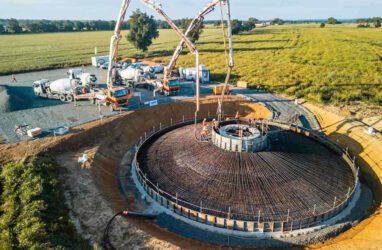Feed aggregator
EU-China agree to cooperate on emissions trading
Report urges Australia not to let coal mines self-report methane emissions
DATA DIVE: The European countries set to capitalise on demand for carbon storage
EU nations call to tweak how ETS is applied to shipping sector to avoid carbon leakage
Huge REDD carbon project planned in Mozambique
Indigenous-led organisation says communities want to explore biodiversity credits
Sunak’s government has almost destroyed Natural England – just for doing its job | Guy Shrubsole
After the election, Labour must end the attacks on a watchdog that is simply trying to protect what little wildlife we have left
England likes to think of itself as a green and pleasant land, yet the Conservatives have been waging a vicious political war against Natural England, the watchdog that is supposed to protect the countryside. During the past decade and a half, Natural England has been undermined by austerity and rendered toothless by deregulation. The Conservative government slashed the organisation’s already insufficient budget by two-thirds, rendering it incapable of carrying out even basic functions. Almost half of England’s nature reserves have not been monitored by government ecologists in recent years, and only 39% of our sites of special scientific interest (SSSIs) are now in “favourable condition”.
It’s much the same story as what has happened to the Environment Agency. Yet in recent years, spending cuts have been the least of Natural England’s worries. The watchdog has also had to withstand a barrage of attacks from Tory MPs, landowners, developers, the shooting lobby and even environment ministers. And under Rishi Sunak’s government, it has come close to being destroyed entirely – simply because it tried to do its job.
Guy Shrubsole is an environmental campaigner and the author of The Lost Rainforests of Britain, Who Owns England? and the forthcoming The Lie of the Land
Forest carbon coalition partners with MRV tech firm
South Korea to launch CCU ‘mega project’ to assist industrial decarbonisation drive
‘I have seen the decline’: pesticides linked to falling UK insect numbers
Experts say invertebrates are exposed to range of chemicals, some of which are 10,000 times more toxic than DDT
Prof Lynn Dicks has had her hands in the soil for almost three decades – and she has watched it slowly become stripped of invertebrate life.
“In my life, I have seen the decline,” says Dicks, an ecology professor at the University of Cambridge. She knows it from the data: “The data we have of long-term trends in insect abundance over time, that the decline rates are, on average, about 1% a year.
Continue reading...Euro Markets: Midday Update
World’s first wind turbine foundation poured from decarbonised concrete
The post World’s first wind turbine foundation poured from decarbonised concrete appeared first on RenewEconomy.
Fortescue invests more in “self-erecting” wind tower innovator
The post Fortescue invests more in “self-erecting” wind tower innovator appeared first on RenewEconomy.
Australia presents climate finance reporting, taxonomy steps in roadmap
Recycling shifts focus away from effective ways to tackle plastic crisis -report
Carbon removals registry partners with multiple marketplace platforms
Tokyo-based carbon developer partners with Vietnamese govt for methane reduction projects
Who do these Europeans think they are trying to ban goods from areas where land clearing occurs? | First Dog on the Moon
Sacre bleu!
- Sign up here to get an email whenever First Dog cartoons are published
- Get all your needs met at the First Dog shop if what you need is First Dog merchandise and prints
Peter Dutton outlines timeline of Coalition's plan for nuclear power rollout – video
Speaking in Sydney on the Coalition's proposal to build seven nuclear power plants, opposition leader Peter Dutton says 'the first two' would be complete 'between 2035 and 2037, depending on which technology you use', with the rest to be completed 'into the 2040s' and 'ahead of 2050'. Dutton says this is 'achievable' and a 'sensible rollout'
► Subscribe to Guardian Australia on YouTube
Peter Dutton names seven potential nuclear power station sites but avoids questions on cost
If regional communities don’t want a windfarm, why would they accept a nuclear power station?
Dutton’s big nuclear plan: “A serious joke” that is mad, bad and dangerous
The post Dutton’s big nuclear plan: “A serious joke” that is mad, bad and dangerous appeared first on RenewEconomy.






